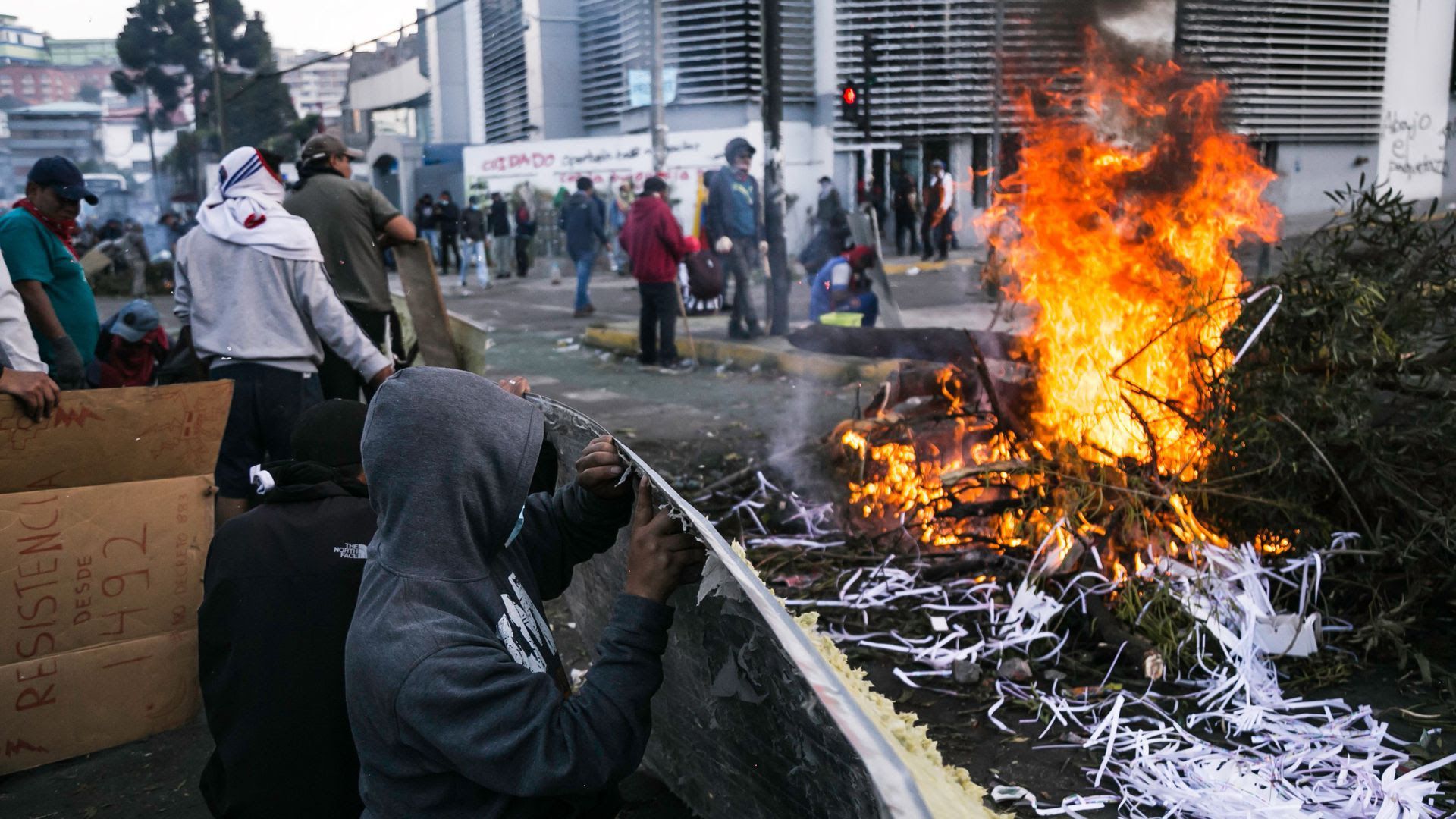Oct 9, 2019 - Energy & Climate
Ecuador's gas price protests show why it's hard to phase out fuel subsidies
Add Axios as your preferred source to
see more of our stories on Google.

Protestors in Quito, Ecuador, on Oct. 8. Photo: Jonatan Rosas/Anadolu Agency via Getty Images
